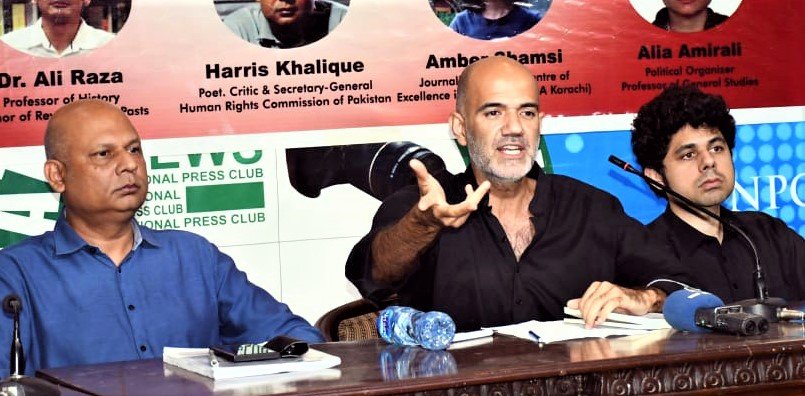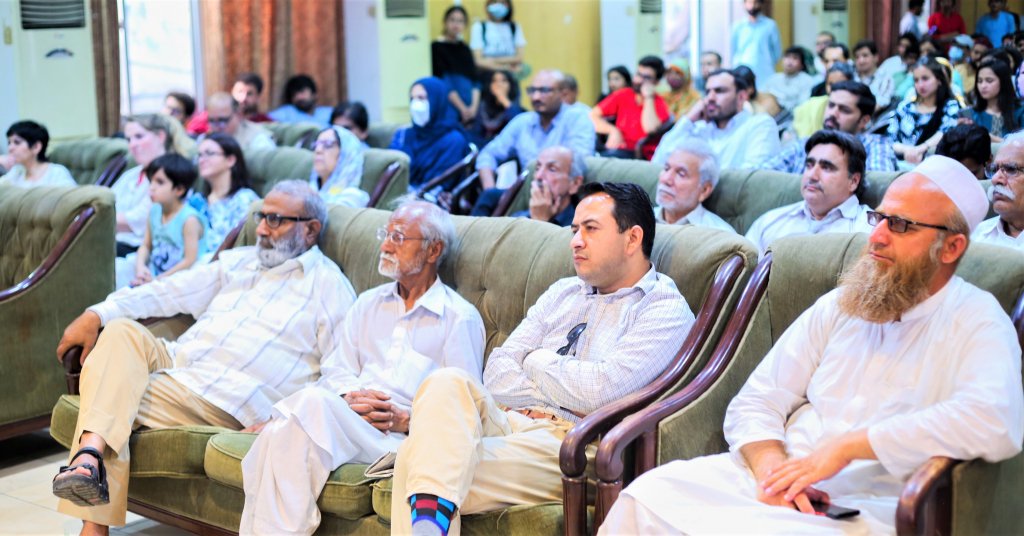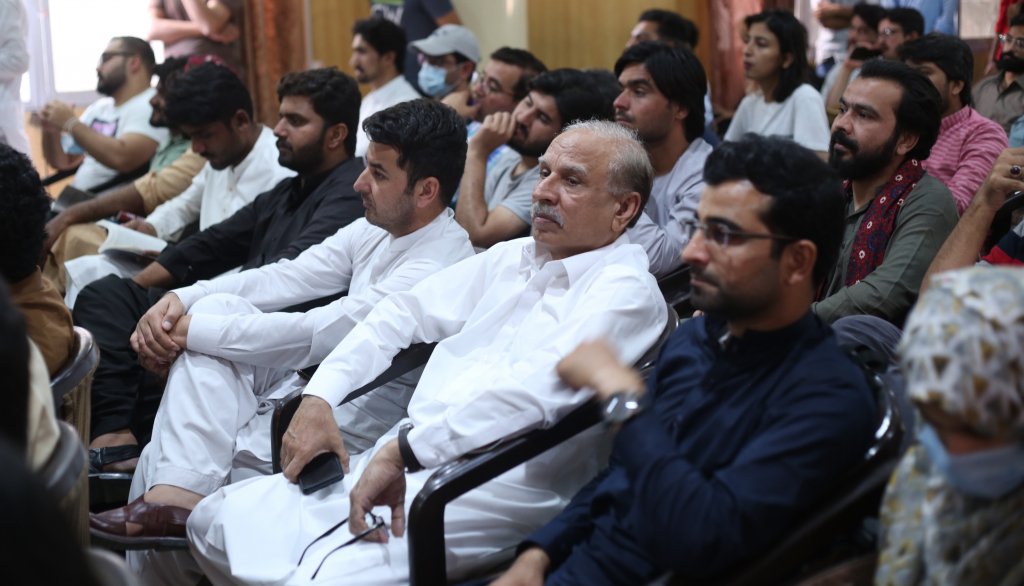News Desk
A literary event to launch The Struggle for Hegemony in Pakistan: Fear, Desire and Revolutionary Horizons authored by Dr Aasim Sajjad Akhtar was held at the National Press Club in Islamabad on Wednesday.
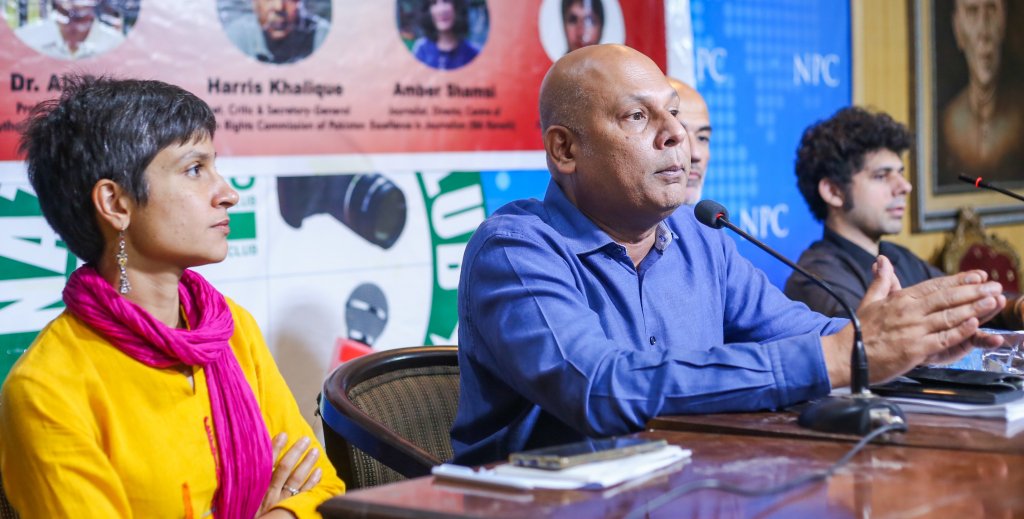
Harris Kahlique, general secretary Human Rights Commission of Pakistan (HRCP), Dr Ammar Ali Jan, an academic, activist and author; Ali Raza, an academic and professor of History; and Amber Shamsie, Director of the Centre for Excellence in Journalism at the Institute of Business Administration (IBA), Karachi reviewed the book and what it has to say about the current political moment and digital spaces in Pakistan.
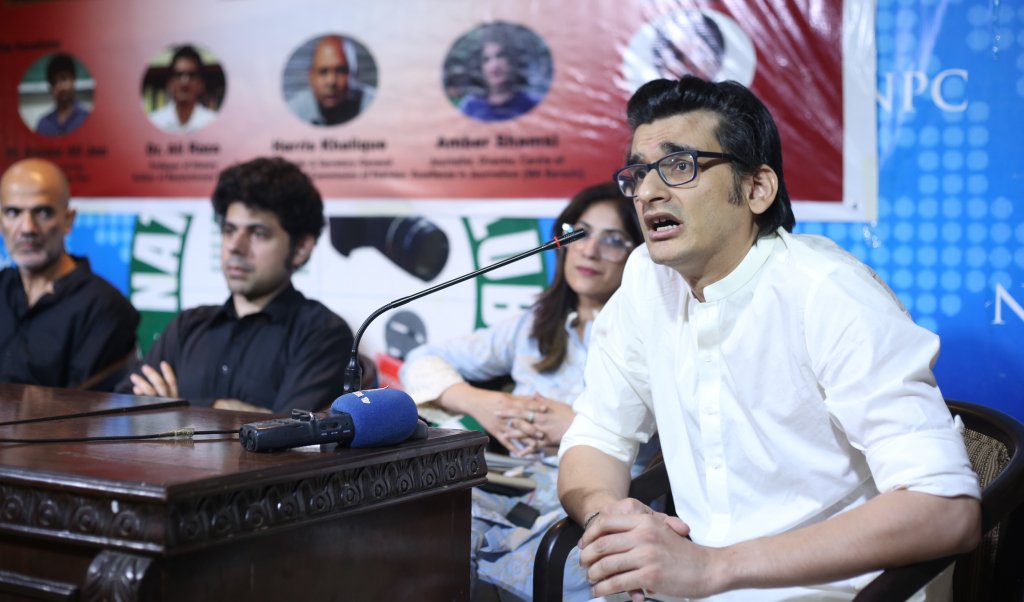
Dr Ammar Ali Jan said the book attempts to chart a way forward, in an increasingly authoritarian world. He said that in a neo-liberal order with rising fascism, it was necessary for the Left to create an alternative.
Dr Ali Raza discussed how the book reminds us of our colonial past, and the way the history of the Left has been suppressed.
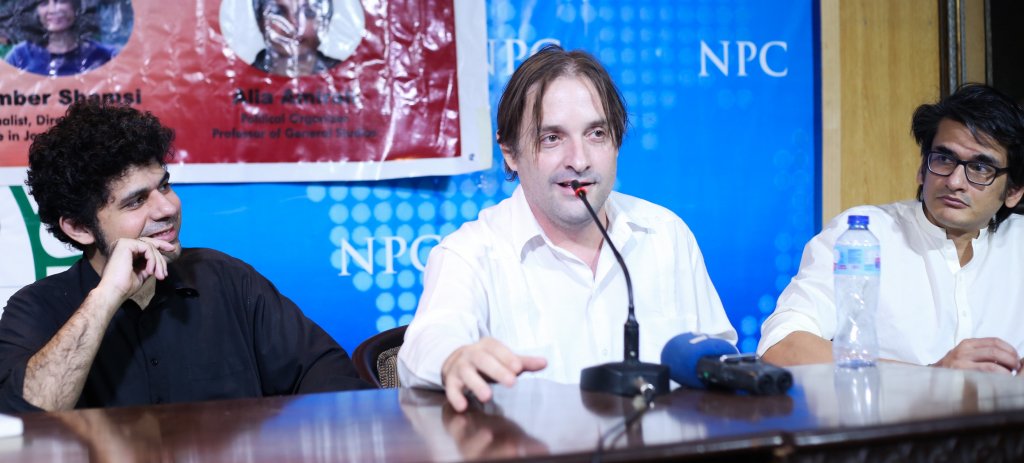
Amber Shamsi emphasised the way in which Imran Khan capitalised on increasing digitisation and authoritarian tendencies to claim himself as a representative and saviour of the Pakistani youth.
Harris Khalique discussed the wider sphere of books being produced in the current moment that try to describe the rise of Imran Khan and our current political moment and how this book too tries to chart the way forward given the rise of authoritarianism.
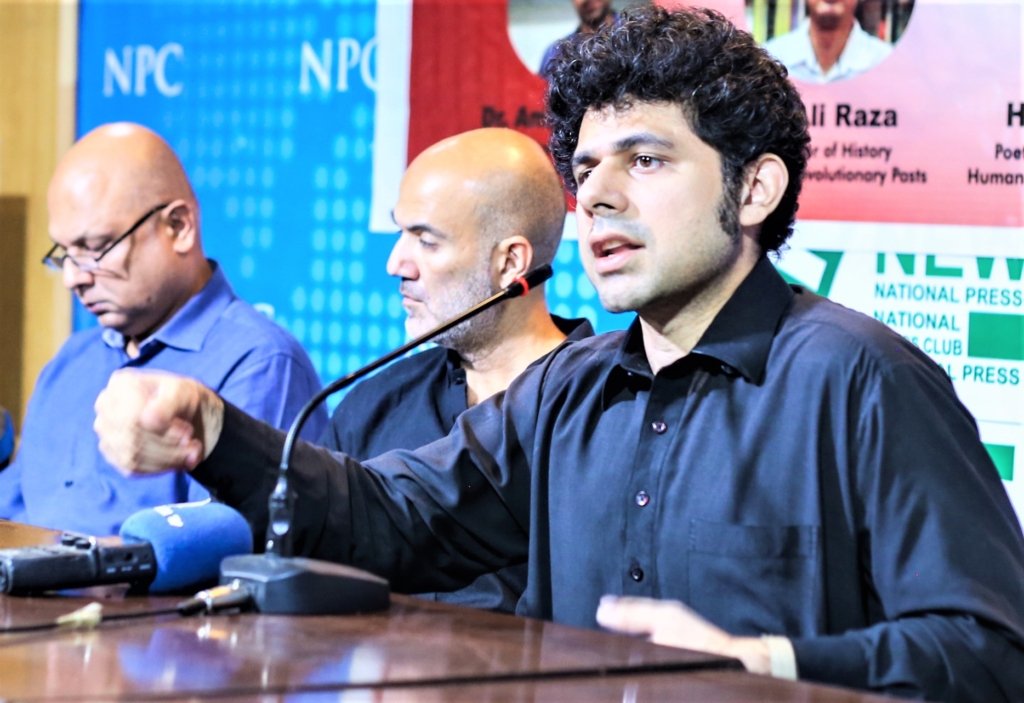
He discussed how there was a battle on the custodianship of Pakistani nationalism between elites and rising challengers. And this clash has made centrist politics unfeasible.
Aasim Sajjad Akhtar talked about how his book represented a moment of reflection from years of progressive politics. He said the book was necessary for him to describe a political moment that is being shaped by the rise of digitisation, financialised capital flows, increased polarisation and authoritarianism.
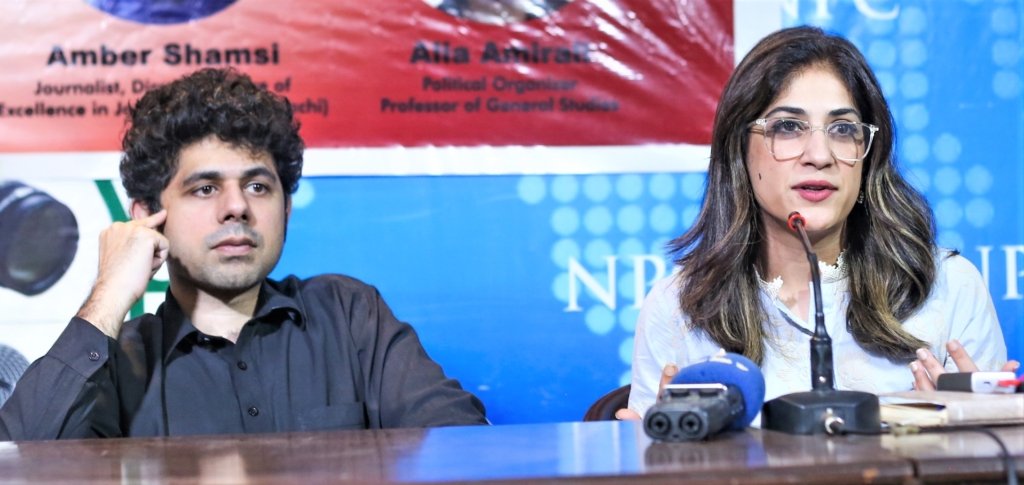
He added that today’s world fuels dream of housing societies, and thoughtless consumption, while at the same time creating fearful subjects, who are taught to celebrate military operations and bulldozing houses of the poor.
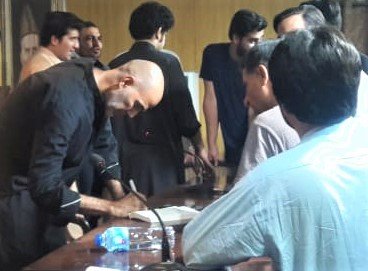
To Dr Aasim, our current moment is of immense challenges and contradictions created by capitalism, manifesting in a speculative economy sensitive to capital flows, and fuelling the current ecological crisis that requires a new transformed subject to meet the challenge. This subject, this new (wo)man, he claimed, needed to transcend a politics consisting purely of recognition and embrace humanity as a whole and struggle for a new order. It is precisely this subject that needs to be organized in the face of a world that atomizes people and separates them from broader struggles.
He concluded the book launch by declaring that it was only a politics of new horizons that matched the ambitions of revolutionaries of the twentieth century, coupled with a spiritual and intellectual reformation to create a man or woman who would fight for this new inclusive order, that this was necessary to address our dual economic and ecological crises.

The High Asia Herald is a member of High Asia Media Group — a window to High Asia and Central Asia

